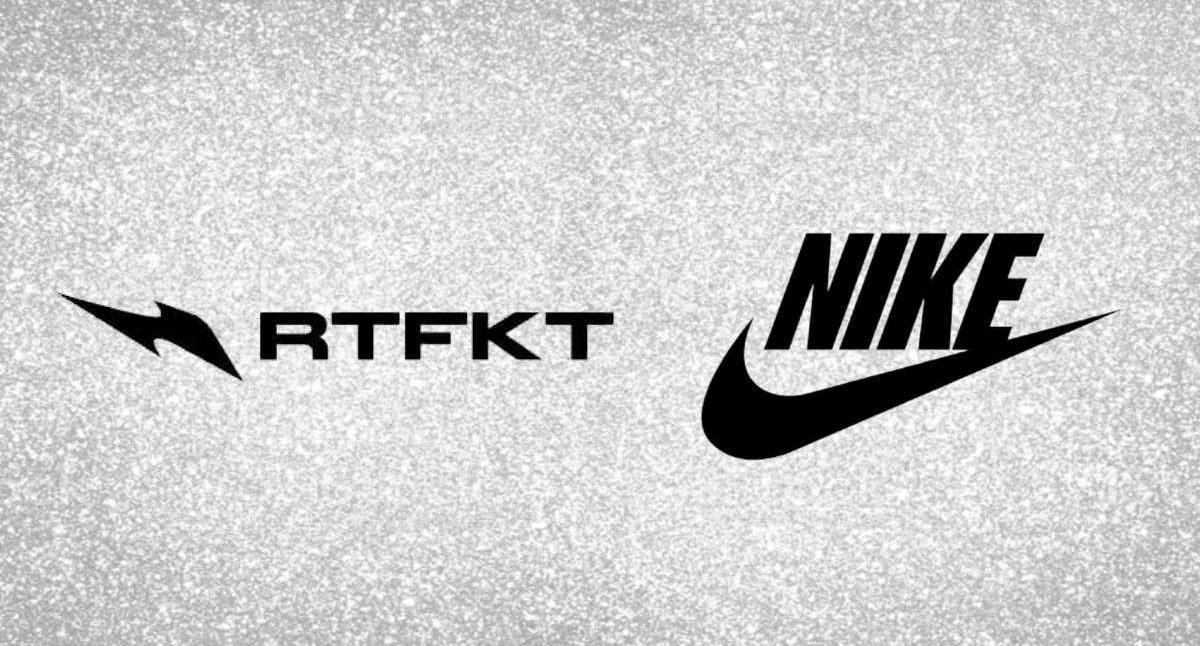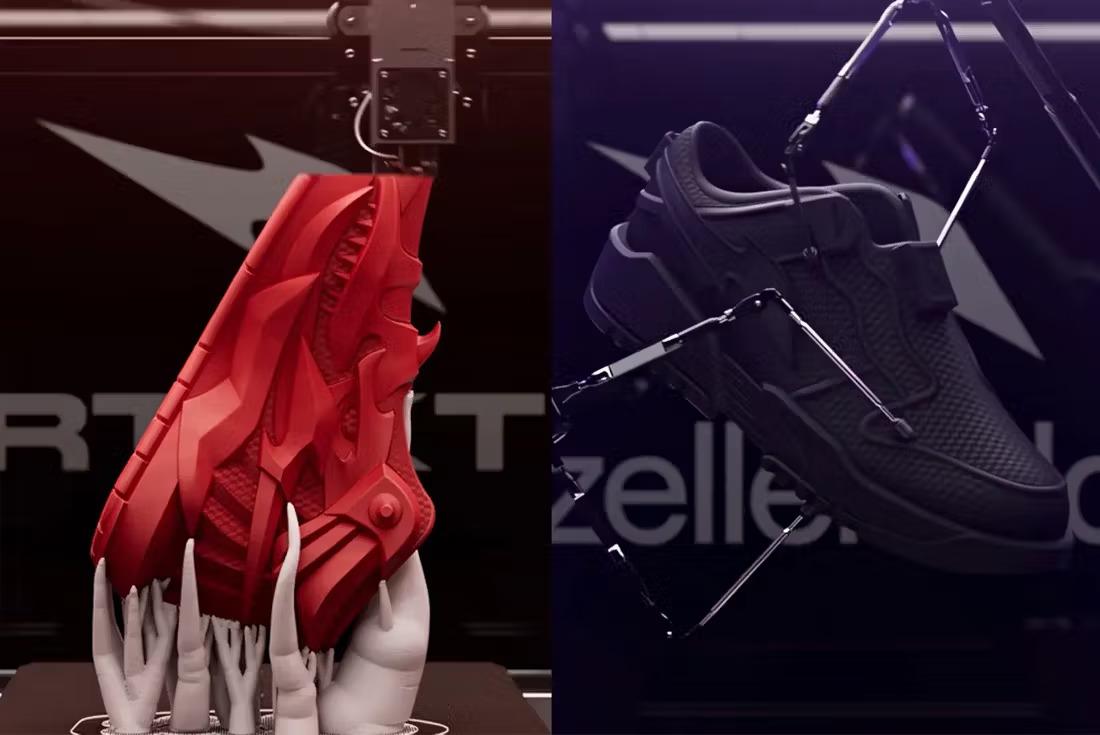
Author: Zen, PANews
In recent years, the exploration of digital fashion and the Web3 space has attracted a significant amount of capital and creativity, with one of the most representative projects being RTFKT. As a team that breaks traditional boundaries, RTFKT has stirred waves at the intersection of blockchain and fashion with its unique digital creativity and NFT projects, catching the attention of Nike, which acquired it in 2021. However, despite the high hopes placed on RTFKT, its role in Nike's strategic transformation has not achieved the expected success.
The MNLTH X Blade Drop, launched in collaboration with 3D-printed footwear manufacturer Zellerfeld, marks the final act of digital fashion and Web3 platform RTFKT, which has become a failed attempt at Nike's creative transformation.

RTFKT: An Unexpected End
The MNLTH X Blade Drop series was released on January 16 on Zellerfeld's website, featuring six sneaker models: RTFKT Dunk, CodeX Dunk, Bladed Dragon, Undead Evo, Reptile Evo, and Cybr Stomper. In this release, RTFKT showed sincerity by abandoning traditional Nike silhouettes like the Air Force 1 in favor of more understated models like the Undead Evo, which features a midsole reminiscent of a reptile's jaw and molars, showcasing creativity and personality.

With the official launch of the MNLTH X project, RTFKT's crypto journey has reached its end. However, the majority of the community seems unconvinced by RTFKT's farewell. Some users expressed, "The shoes are so cool, but I can't imagine what it would feel like to spend more money on a pair of shoes from a company that no longer exists, aside from the money spent on NFTs and physical items." Many users bluntly called RTFKT's actions a rug pull and urged the project team to close their accounts and disappear from the scene.
In early December 2024, RTFKT announced on X (formerly Twitter) that it would cease operations, while its virtual creation platform .Swoosh based on Polygon would continue to exist in the Web3 space. "RTFKT is not over; it is becoming what it was meant to be—a relic of a cultural revolution," RTFKT stated in its announcement. Amidst the surprise, several users generated hopes of taking over its flagship NFT series Clone X, aiming to replicate the story of Luca Netz acquiring Pudgy Penguins and revitalizing it into a top-tier NFT project.
Clone X is a PFP (Profile Picture) type project based on Ethereum, launched in 2021 in collaboration with Japanese contemporary artist Takashi Murakami. In fact, Clone X itself is one of the most famous and successful PFP projects in the NFT space, having generated over $800 million in trading volume to date. Amidst the downturn in the NFT market, the series has fallen from a historical high floor price of $63,000 in 2022 to just 0.24 ETH today, worth less than $1,000. Besides the overall market slump, RTFKT's elimination from Nike's series of brands and businesses may also be related to the strategic adjustments of this sports brand giant, which brings us back to the acquisition.
Why Did Sports Giant Nike Acquire RTFKT?
In December 2021, Nike acquired RTFKT for an undisclosed amount. John Donahoe, then CEO and President of Nike, stated that this was a step to accelerate "Nike's digital transformation, enabling us to serve athletes and creators at the intersection of sports, creativity, gaming, and culture." Donahoe also mentioned that Nike's plan was to invest in the RTFKT brand, serve and develop its innovative creative community, and expand Nike's digital footprint and capabilities.
The acquisition of RTFKT, as a strategic move into the new digital realm of NFTs, can be traced back to 2017. In that year, Nike announced its "Consumer Direct Offense" strategy, which included enhancing the company's digital influence and establishing more one-on-one connections with consumers.

In 2020, when announcing Donahoe's appointment, Nike's then-CEO Mark Parker stated that Donahoe was "very well-suited" to achieve these goals. Looking at his resume, Donahoe was indeed the best candidate—he had served as the market president of eBay's e-commerce platform since 2005, overseeing its core business, and was CEO of eBay from 2008 to 2015.
During Donahoe's tenure at Nike, the sports giant was fervently expanding its DTC (Direct-to-Consumer) business, and digital operations provided Nike with the ability to directly reach and serve consumers. Digital channels not only eliminated the middlemen of traditional wholesale but also facilitated the collection of consumer preferences and habits, enhancing the interaction experience between consumers and brands. This led Nike to increase its investment in digital business, culminating in the acquisition of RTFKT.
The Backstory: Nike's Ongoing Struggles and "Changing of the Guard"
In recent years, Nike's transformation towards DTC has not been successful, with Donahoe's leadership showing fluctuations in the inclination and reliance on traditional wholesale and DTC business. In 2021, Nike began to cut back on wholesale partners to focus more on DTC. However, the rapid cuts led to excessive inventory, necessitating significant discounts. Realizing the misstep, Nike began to reintroduce wholesale partners like DSW back into its business in 2023. As part of the DTC transformation and to cut costs amid declining sales, Nike has also undergone multiple rounds of layoffs over the past two years, affecting many "senior employees."
In March 2024, Nike announced its first decline in digital business in nine years, and its market value has shrunk by nearly half over the past three years. Due to poor performance, John Donahoe chose to resign in October 2024, and Nike brought back veteran employee Elliott Hill as his successor. Hill has worked at Nike for over 30 years, rising from a clothing sales intern to President of Consumer Marketing. Shortly after Donahoe took over Nike, Hill chose to leave the company.

Left: John Donahoe, Right: Elliott Hill
After taking office, Elliott Hill changed the company's business focus, promising to shift priorities and resources to make "sports once again the North Star of Nike." Hill stated that Nike had "lost its obsession with sports" and vowed to get the company back on track. Additionally, he aimed to strengthen the already weakened wholesale business and reverse some strategic missteps made under the previous CEO, such as the deterioration of relationships with retailers like Foot Locker.
As a remnant of the Donahoe era, RTFKT, regardless of its importance or business scale, pales in comparison to the core businesses that Hill values. In the press release announcing Donahoe's resignation as President and CEO, RTFKT's logo was notably absent from its brand lineup. Exiting the NFT space was merely a matter of time for Nike.
Interestingly, Nick O’Neill, co-founder of the NFT project BoDoggos, seemingly aware of the "inside story," tweeted in March 2024 that RTFKT would close by the end of the year. The incredulous community immediately criticized him, and RTFKT co-founder @Zaptio even personally mocked, "Looks like I missed the shutdown memo," asserting that Nick was talking nonsense.
Ultimately, time proved everything.
免责声明:本文章仅代表作者个人观点,不代表本平台的立场和观点。本文章仅供信息分享,不构成对任何人的任何投资建议。用户与作者之间的任何争议,与本平台无关。如网页中刊载的文章或图片涉及侵权,请提供相关的权利证明和身份证明发送邮件到support@aicoin.com,本平台相关工作人员将会进行核查。




